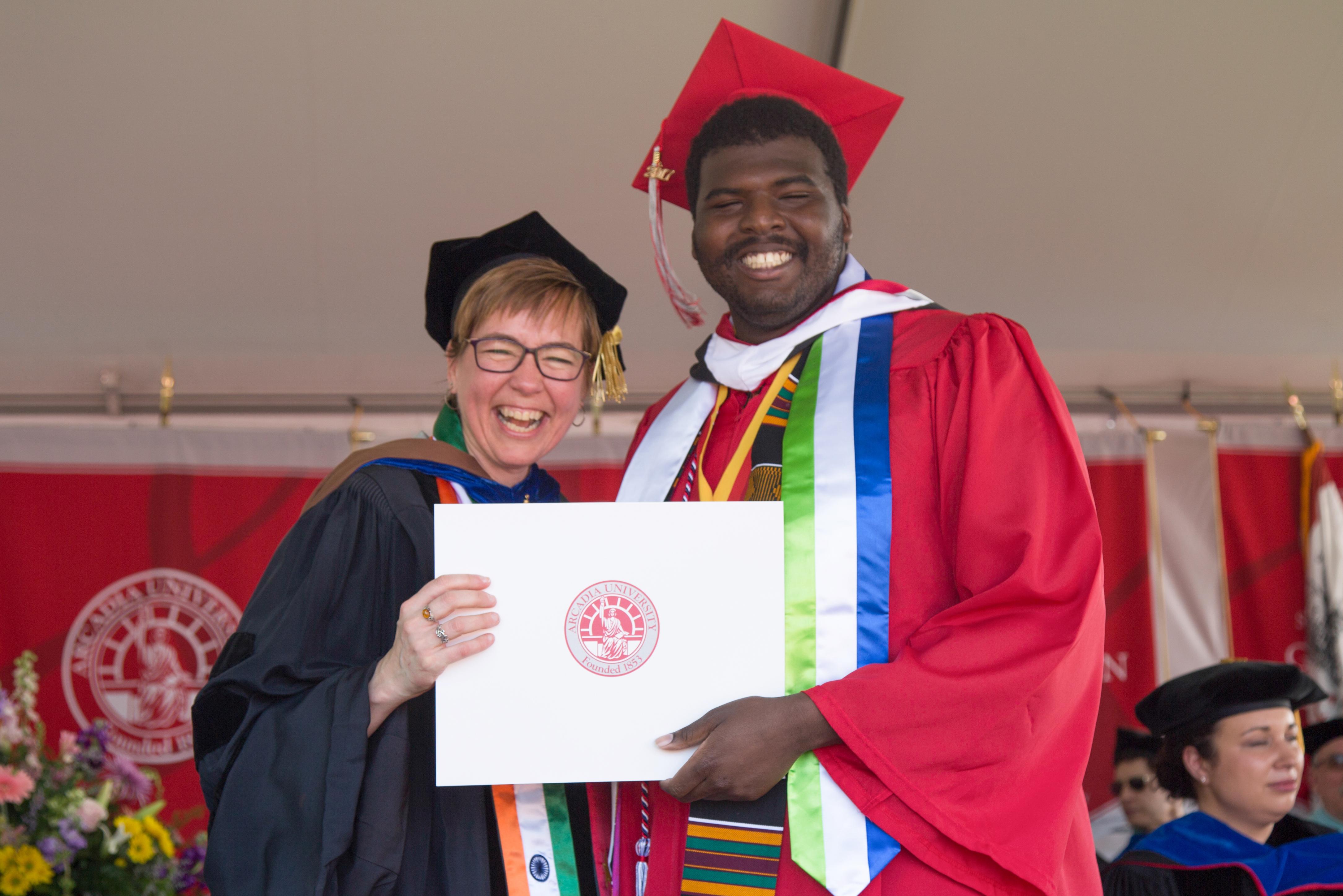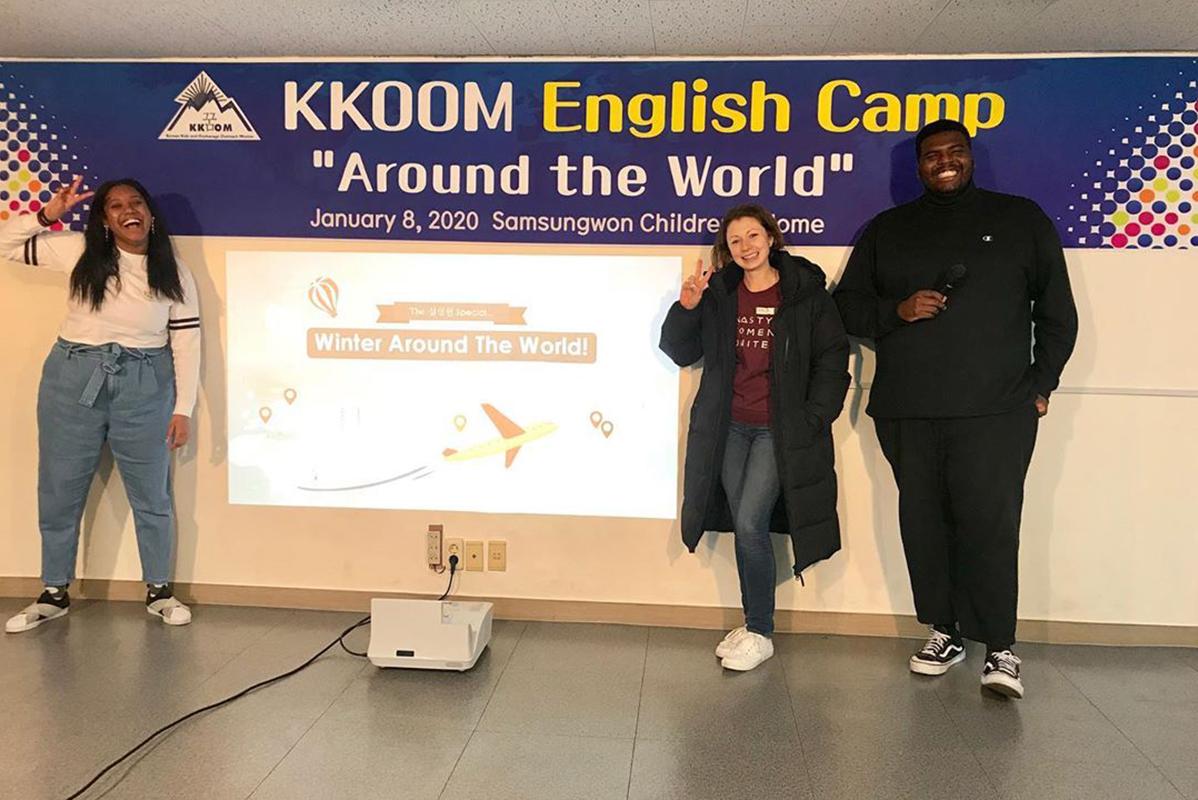Fulbright Helps Long ’17 Find Career Path

Cliff Long ’17
Bachelor of Arts in Political Science
2017 English Teaching Assistant Fulbright Award Recipient
2015 Benjamin A. Gilman International Scholarship Recipient
If you had asked Cliff Long ’17 in 2013 what he imagined doing after graduation, the answer wouldn’t have been teaching in South Korea. However, since July 2017 he’s been working as an English Teaching Assistant (ETA) with the Fulbright U.S. Student Program.
In the spring of 2014, Long’s first international experience, on the University’s Preview program, changed his trajectory. He participated in the South Korea Preview, which studies visual elements of Korean art and architecture to educate students about the culture. He studied abroad at the Ewha Womans University in Seoul the following spring.
Long is one of two students in the University’s history to receive an ETA Fulbright award.
“Arcadia’s the reason I got the Fulbright,” said Long. “Working with the Office of International Programs (OIP) and professors in the Historical and Political Studies Department on the Gilman Scholarship led to the Fulbright. They were like, ‘You can do it.’ I had a lot of support.”
While he originally worked in Busan, South Korea as a public school teacher, Long has been teaching in a school for North Korean defectors in Seoul since last fall. Students range in age from sixth graders to seniors in high school, and are either former residents of North Korea or children of North Korean defectors living in China or South Korea.
“Last semester I had to leave Busan, and [the Korean-American Educational Commission] asked me if I would teach at one of the newer North Korean defector schools in Seoul,” said Long, who moved to Seoul after the Fulbright program in Busan was restructured. “Some of the students are my age and some are middle school kids. Some have been in South Korea for longer, so they’re more similar to South Korean students. But last semester we had students that had just arrived from North Korea, as well.”
Long said that his teaching style changes based on the level of understanding in the classroom. For students who are new to South Korea, he limits cultural references and builds English language skills. For those who have been in South Korea, he uses Korean pop culture references and practices more intermediate or advanced English lessons.
“All of the students are not where they’re from: Some of them, their parents are in China or North Korea. A lot of them didn’t come with their families,” said Long. “All students have their own process.”
Through the experience of teaching, Long has found a new bond with his mother, even if she is nearly 7,000 miles away. Long talks to his mother, a 30-year veteran teacher, nearly every day and often asks her advice about how he can help students both in the classroom and beyond.
“As a teacher, you realize how bad you were as a student,” said Long. “I was a pretty relaxed student, and it makes you reflect—maybe I should’ve done my homework when my mom told me to do it, or maybe I shouldn’t have blown up when she’d turn my game off and tell me to go to sleep.”
In addition to working with students in the classroom, Long also manages the Korean Adolescent Mentoring Program (KAMP), which is a network of ETAs who mentor students throughout South Korea. KAMP provides a support system for ETA mentors to find resources and ask advice. He also helps with educational programs at a regional orphanage, which includes helping set up and organize the children’s holiday party and leading a workshop for elementary school children at the winter camp.
“Everything I do is around mentoring and development,” said Long. “It’s the little connections and little threads spread out around the country and around the world.”

Long and colleagues ran a booth at the winter camp about how other countries experience winter.
This is Long’s last semester in South Korea with the Fulbright program before he returns to Burlington, N.J. He plans to enroll in AmeriCorps, a network of national service programs that each take a different approach to improving lives and fostering civic engagement. Volunteers commit three months to a year of their time to serving the community in a variety of ways, such as mentoring youth, fighting poverty, sustaining national parks, and preparing for disasters.
“AmeriCorps has a lot of mentoring programs that I really want to be able to work in New Jersey and give back to my community,” said Long. “I studied political science, but I’ve shifted my focus to education and mentoring, and youth development. Right now, the plan is to come back and do AmeriCorps for a year. And after that, I want to reassess. Maybe I’ll come back to Korea, maybe I’ll do something else. But for right now, AmeriCorps is my path.”


